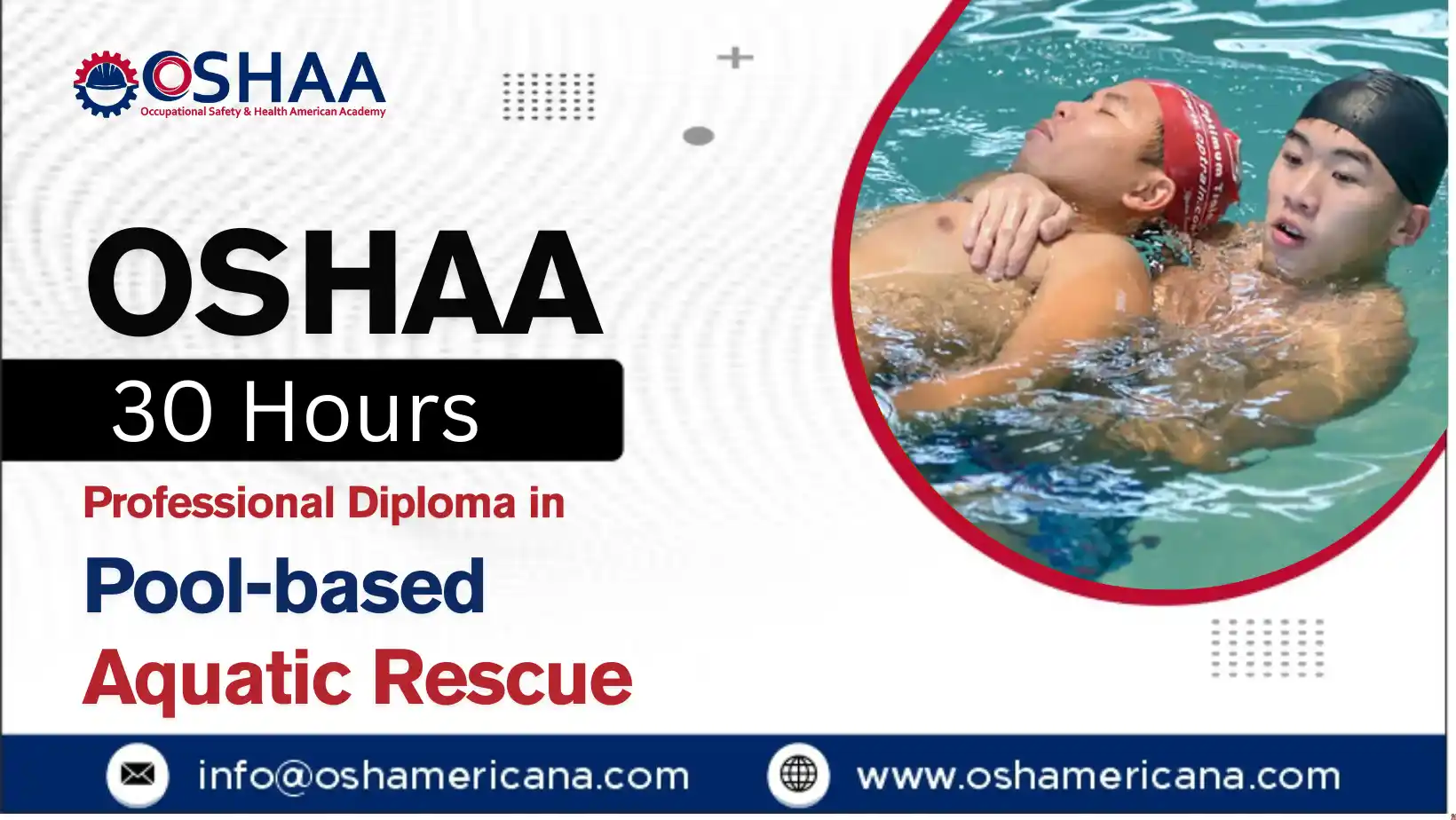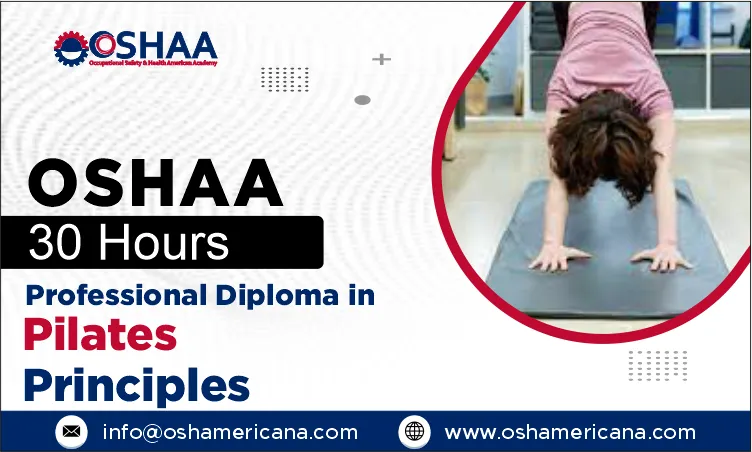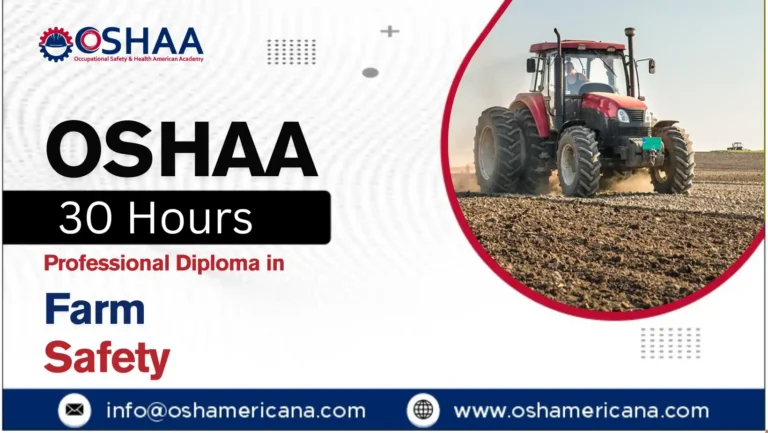OSHAA 30-Hours Professional Diploma in Pool-Based Aquatic Rescue Excellence
The OSHAA 30-Hours Professional Diploma in Pool-based Aquatic Rescue is a specialised training programme developed to equip participants with the essential skills, knowledge, and confidence required to manage rescue situations in swimming pool environments. Awarded by OSHAA, this diploma is designed to align with recognised industry safety expectations, ensuring participants can respond effectively to emergencies while maintaining high standards of aquatic safety and professional responsibility.
This course delivers a balanced combination of theoretical learning and practical skill development. Participants will gain in-depth understanding of hazard identification, risk assessment, casualty evaluation, and safe rescue techniques specific to pool-based settings. The programme also focuses on prevention strategies, post-incident care, effective communication, and teamwork, enabling participants to operate confidently within coordinated emergency response systems. Practical sessions are structured to reflect realistic poolside and in-water scenarios, enhancing readiness and decision-making under pressure.
The OSHAA 30-Hours Professional Diploma in Pool-based Aquatic Rescue is ideal for individuals working or aspiring to work in aquatic safety roles such as lifeguards, pool supervisors, and facility safety personnel. Upon completion, participants will be capable of performing efficient rescues, managing spinal and non-spinal incidents, and supporting a strong safety culture within aquatic facilities. This diploma enhances professional credibility and demonstrates a clear commitment to protecting lives and maintaining safe pool environments.
OSHAA 30-Hours Professional Diploma in Pool-based Aquatic Rescue
Study Units
Learning Outcomes
Introduction to Pool-based Aquatic Rescue Principles (3 Hours)
- Understand the fundamental concepts and objectives of aquatic rescue in pool settings
- Recognise the importance of prevention, preparedness, and professional conduct during rescues
- Identify different types of aquatic emergencies and appropriate response strategies
Legal, Ethical, and Safety Requirements in Aquatic Environments (3 Hours)
- Interpret relevant laws, regulations, and industry standards for pool-based rescue operations
- Apply ethical considerations and professional responsibilities in rescue situations
- Follow safety protocols to minimise risks during aquatic activities
Risk Assessment and Hazard Prevention in Pool Operations (4 Hours)
- Conduct systematic risk assessments in aquatic environments
- Identify potential hazards and implement preventive measures
- Develop and maintain safety plans to address identified risks
Rescue Equipment: Types, Functions, and Safe Usage (3 Hours)
- Identify key rescue equipment and its specific functions
- Demonstrate correct handling, maintenance, and storage of rescue tools
- Select and use appropriate equipment based on the nature of the emergency
Casualty Assessment and Immediate Response Techniques (3 Hours)
- Perform rapid and accurate casualty assessments in aquatic emergencies
- Apply primary survey techniques to prioritise urgent needs
- Implement immediate interventions to stabilise casualties before extraction
In-water Rescue Procedures and Safe Extraction Methods (5 Hours)
- Demonstrate various in-water rescue techniques for conscious and unconscious casualties
- Apply safe lifting, carrying, and extraction procedures from the pool
- Minimise further injury risk during casualty recovery operations
Spinal Injury Management and Specialist Rescue Protocols (4 Hours)
- Recognise signs and symptoms of spinal injuries in aquatic environments
- Apply immobilisation techniques during water-based rescues
- Follow specialist protocols for safe spinal injury management and extraction
Coordinated Teamwork and Communication in Rescue Operations (3 Hours)
- Work effectively as part of a rescue team in high-pressure situations
- Use clear and concise communication methods during rescue operations
- Coordinate roles and responsibilities to ensure efficient and safe outcomes
Post-Rescue Care, Documentation, and Incident Review (2 Hours)
- Provide appropriate aftercare to casualties following rescue
- Accurately complete incident documentation and reports
- Participate in debriefings and apply lessons learned for future improvement
- Equips participants with advanced skills and knowledge to perform safe and effective pool-based aquatic rescues
- Enhances ability to assess risks and respond promptly to emergencies in aquatic environments
- Develops proficiency in using specialised rescue equipment and techniques, including spinal injury management
- Strengthens teamwork, communication, and coordination during rescue operations
- Improves confidence in handling a variety of aquatic rescue scenarios with professionalism and care
- Supports compliance with legal, ethical, and safety standards in pool rescue settings
- Provides practical training that prepares participants for real-life emergency situations
- Increases employability and career progression opportunities within aquatic safety and lifeguarding roles
- Promotes a proactive safety culture within aquatic facilities through continuous learning and improvement
- Awards a recognised qualification from OSHAA, affirming participants’ expertise and commitment to aquatic rescue excellence
- Participants working as lifeguards, pool supervisors, or aquatic safety officers in swimming pools and leisure centres
- Participants responsible for emergency response and rescue operations in aquatic facilities
- Participants seeking to enhance their skills in aquatic rescue, casualty management, and spinal injury care
- Participants involved in swim schools, sports centres, hotels, and recreational water environments
- Participants aiming to meet regulatory requirements and industry standards for pool-based rescue qualifications
- Participants looking to advance their careers in aquatic safety, emergency response, or lifeguarding roles
- Participants committed to maintaining high safety standards and improving rescue outcomes in pool environments







